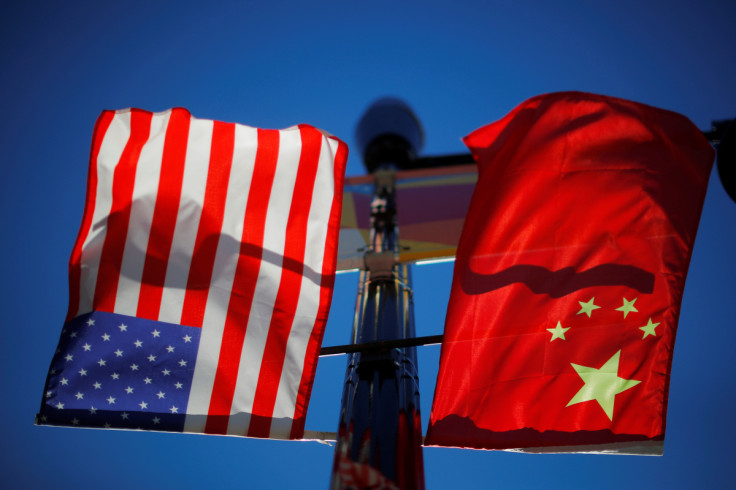Does The US Have A China Strategy?

Everyone following Washington's policies toward China closely recently cannot help but be puzzled by the frequent shift in rhetoric. One day, it sends its top diplomat to Beijing to mend relations that several economic and geopolitical issues have soured. The next day, it calls China's leader a dictator rather than stating goals and courses of action for each issue involved.
Rhetoric aside, does Washington have a strategy to make peace with China and address the many issues that divide the two world powers? Geopolitical analyst Irina Tsukerman thinks the U.S. has no China strategy.
"Making real peace with China is impossible because U.S. and China have conflicting geopolitical worldviews and strategic goals," she told International Business Times. "To the U.S., the constitutionally protected individual freedoms and rights are paramount; it seeks to lead but in the context of peaceful coexistence with other countries. The U.S. views its foreign policy more in the context of partnerships of varying degrees of cooperation and conflict. China, by contrast, sees itself as the sole hegemon of a 'one world' global society."
Moreover, Tsukerman believes that China is a colonial power that seeks to take over the natural resources of smaller and weaker countries from Asia to Africa and uses them to maintain stability and control on its terms.
The radical differences in how Beijing and Washington perceive the new geopolitical landscape are most pronounced in the South China Sea, where the U.S. sees natural alliances with smaller and diverse countries. By contrast, Beijing considers any defense arrangements with these countries directly threatening its territorial integrity.
"Such approaches are incompatible and bound to clash sooner or later," Tsukerman added. "But the U.S. has failed to fully acknowledge this reality and consider the costs of confronting such a power at this stage of its economic and political development."
Matt Shoemaker, former intelligence officer at Defense Intelligence Agency (DIA), believes that President Biden's administration has had a reactive approach to foreign policy for the past three years. "There is no 'Biden Doctrine' for a reason; that is to say, it does not appear that there is any underlying philosophy or end goal that President Biden wants to achieve whether it be regarding Russia, China, Iran," he told IBT.
"What there is a desire on President Biden's part to stifle Chinese economic growth subtly and quietly in specific sectors. Where President Trump took a whole of government approach to limiting Chinese activities with the trade war he launched, President Biden has limited Chinese access to microchips," he added.
Shoemaker went on to enumerate several areas of inconsistency in foreign policy. "President Biden has been on multiple sides of many issues, from calling for caution regarding arming Ukraine one day to saying President Putin needs to be removed the next. His aides have quite the task trying to determine what is on Biden's agenda for the day," he said further.
Timothy S. Rich, Ph.D., professor of political science and director of the International Public Opinion Lab (IPOL) of Western Kentucky University, believes there are a few ways of explaining the inconsistent messaging from Washington regarding U.S.-China relations.
"The statements from Blinken have been consistent with decades of U.S. policy on China vis-a-vis Taiwan and don't signal any implied shift," he told IBT. "Rather than read this as an olive branch or someone acknowledging China's strength, one could see this as simply the standard rhetoric in U.S.-China talks while expecting little change on China's side."
Meanwhile, Rich didn't expect any breakthrough from the recent high-profile meetings between the two sides. "President Biden's 'dictator' comment, while off the cuff, seems more directed at a domestic U.S. audience than China, one where anti-China sentiment has grown since COVID and crosses party lines," he said.
Rich doesn't find the president's comment inconsistent with what presidents have said about authoritarian leadership before, something Chinese leaders have downplayed or claimed things were lost in translation.
"My overall sense is that the Biden administration was expecting a cold reception and that aggressive statements from China would make taking a stronger stance on China much easier," he added.
© Copyright IBTimes 2024. All rights reserved.






















